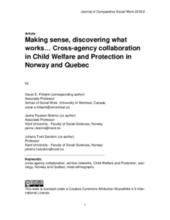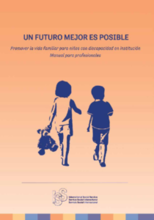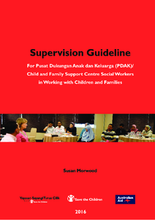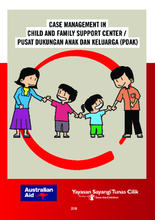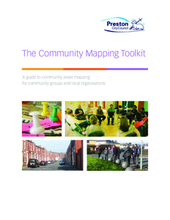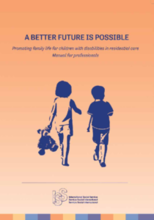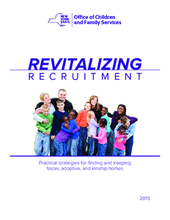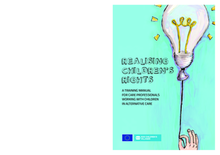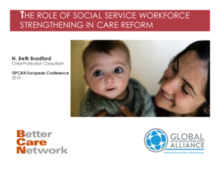Displaying 401 - 410 of 507
This study seeks to understand collaboration dynamics in social services for determining what strategies work best in facilitating collaborative endeavors in specific policy and institutional environments.
Este manual proporciona orientación a los profesionales que trabajan con niños con discapacidades en el cuidado residencial.
This Supervision Guideline document from Save the Children contains guidelines and underlying principles for Pusan Dukungan Anak dan Keluarga (PDAK) child and family support centre social workers in working with children and families.
This book introduces the PDAK – Pusat Dukungan Anak dan Keluarga (Child and Family Support Centre) in Indonesia and the case management system utilized within the centre.
This toolkit explains the process behind asset mapping, looks at how to carry out a Community Street Audit, provides advice on making asset mapping meaningful and ensuring it leads to constructive action, and on involving different sections of the community - including community residents, elected councillors and representatives from local services. Finally it looks at the tools you may need, and how to keep community and local agencies informed of any action plans arising from the asset mapping.
This manual provides guidance to professionals who work with children with disabilities in residential care.
According to the advocacy organization, First Focus, the U.S. Senate Finance Committee is planning to consider new legislation known as the Family First Act in January 2016. The legislation would direct investments at keeping children safe and supported at home and in family-like settings.
This guide, published by the New York State Office of Children and Family Services, provides a summary of promising practices currently used in recruitment and retention of foster/adoptive families.
The two-day course outlined in these pages is designed to familiarise groups of care professionals with the international standards and principles surrounding children’s rights – and above all, to relate this to the daily experience and challenges arising in the field of alternative care.
This presentation was given by Beth Bradford at the ISPCAN European Conference in September 2015.

